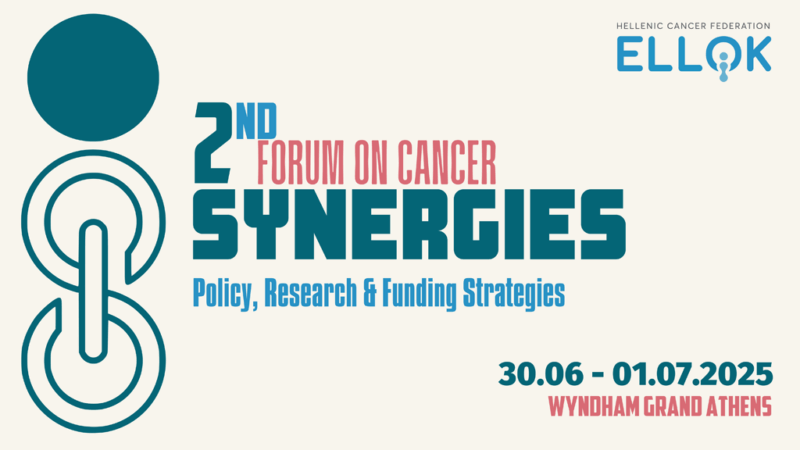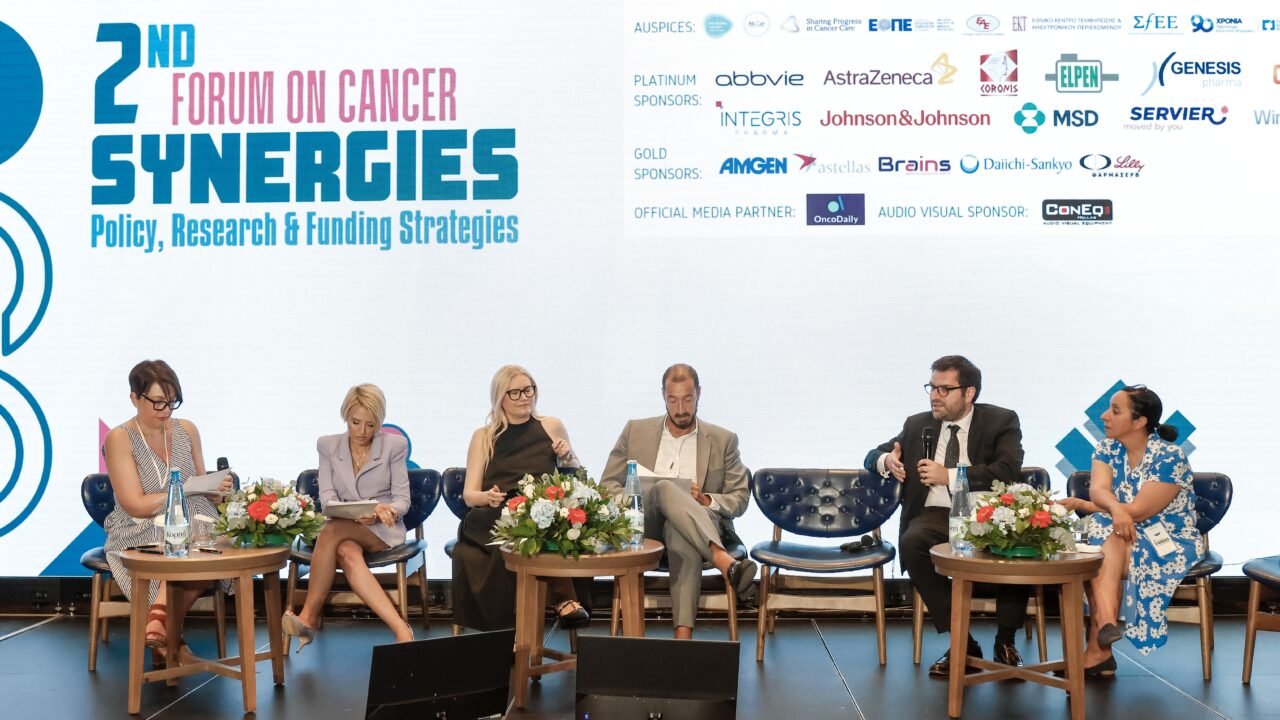During the 2nd Synergies Forum on Cancer – Policy, Research & Funding Strategies, hosted by ELLOK, a compelling panel discussion titled “Harmonizing Pediatric Cancer Care Across the EU” brought together international experts and advocates. The discussion illuminated the persistent inequalities in care, the policy frameworks available, and the essential next steps to ensure all children with cancer across Europe receive the best possible outcomes, regardless of geography.
Speakers Included:
• Samira Essiaf, CEO, European Society for Paediatric Oncology (SIOPE)
• Dr. Gevorg Tamamyan, President, International Society ofPaediatric Oncology (SIOP) Asia Continental Branch
• Dr. Emmanouil Papasavvas, President of the Children’s Oncology Hospital “Marianna V. Vardinoyannis- Elpida”
• Katie Rizvi, Founder, Youth Cancer Europe
• Maria Pefkianaki, Opthalmologist, Head of Ocular Oncology Center, Specialist in Ocular Oncology Adult and Children “Hygeia” Hospital
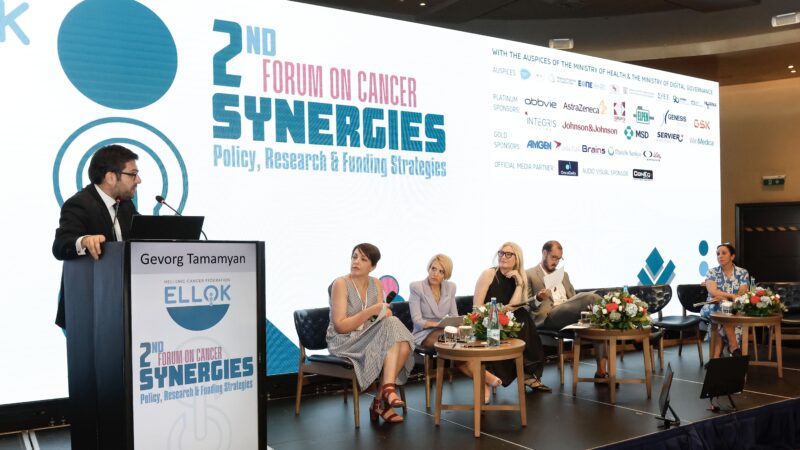
A Policy Framework That Needs Activation
Opening the discussion, Samira Essiaf highlighted the legislative and structural progress made at the EU level, particularly through Europe’s Beating Cancer Plan:
“For the first time, childhood cancer has its own chapter in a European strategy. This is a historic achievement. But the challenge now is implementation.”
She pointed out the importance of funding, cooperation mechanisms, and the development of pediatric-specific infrastructures:
“We have initiatives like ERN PaedCan and the European Registry for Childhood Cancer. Now we must ensure these are sustainably funded and fully integrated at the national level.”
Essiaf also warned against complacency:
“Having policy frameworks is not enough. Without real, national-level actions and follow-up, children will continue to fall through the cracks.”
She also mentioned the existing problems across the region and the mission of SIOPE:
“Today we have 6,000 children and young adolescents, adults from cancer dying annually. We have two-thirds that are childhood cancer survivors. And we have a 20% gap in childhood cancer survival rates, depending on which country you live in Europe. Now, what is SIOP Europe’s mission? It’s really to raise awareness, do EU advocacy, education, research and EU projects. If you want to have more information, just come to me later on.”
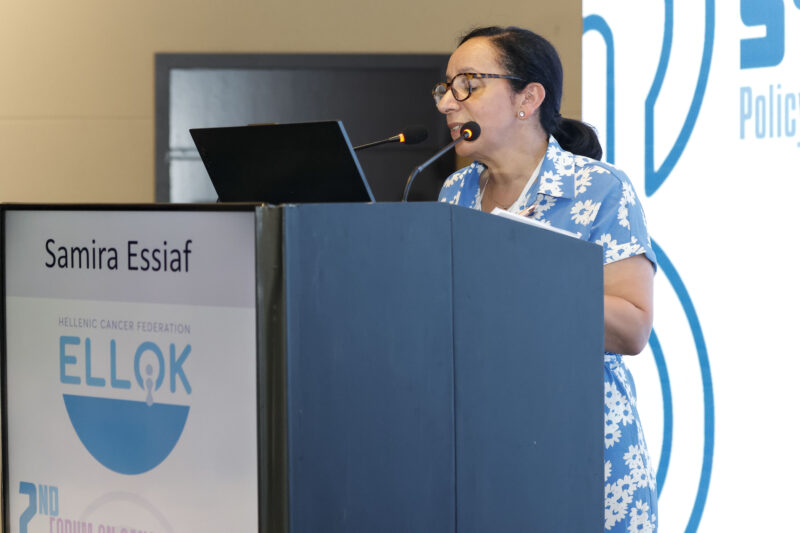
Unequal Outcomes in a Curable Disease
Dr. Gevorg Tamamyan underscored a stark and sobering truth:
“The most striking problem we are facing in pediatric cancer today is that the majority of patients around the world are not surviving, even though we have the best available treatments.”
He emphasized the stark divide between outcomes in high-income versus low- and middle-income regions:
“In Greece, Belgium, and Switzerland, 85–90% of children with cancer are surviving. That is amazing. But in many parts of the world, the survival rate is reversed, many children are dying needlessly.”
Dr. Tamamyan also challenged the notion that geography should dictate outcomes:
“What is geography? It’s just a map. Otherwise, we are the same people, just living in different parts of the world. We cannot let location decide whether a child lives or dies.“
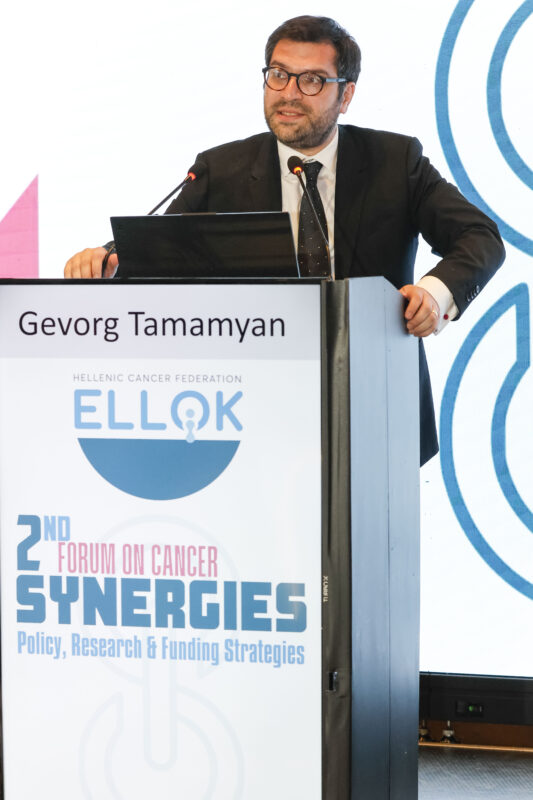
Care Beyond Treatment: The Human Dimension
Maria Pefkianaki, speaking from the perspective of Greek patient associations, passionately advocated for psychosocial support and holistic care:
“A family facing childhood cancer experiences a collapse of everything familiar. Parents must be supported—not just as caregivers but as humans, grieving, fighting, surviving alongside their children.”
She called for collaborative action:
“Educating primary care and pediatric colleagues, guaranteeing that every child, regardless of geography, has the right to have timely specialized care. By working together, we can ensure that the child in Athens, in Bucharest, on Siki, has the same chance for cure and for full life. After all, every child in Europe deserves not only the chance to survive, but also the chance to see the world they are meant to explore.“
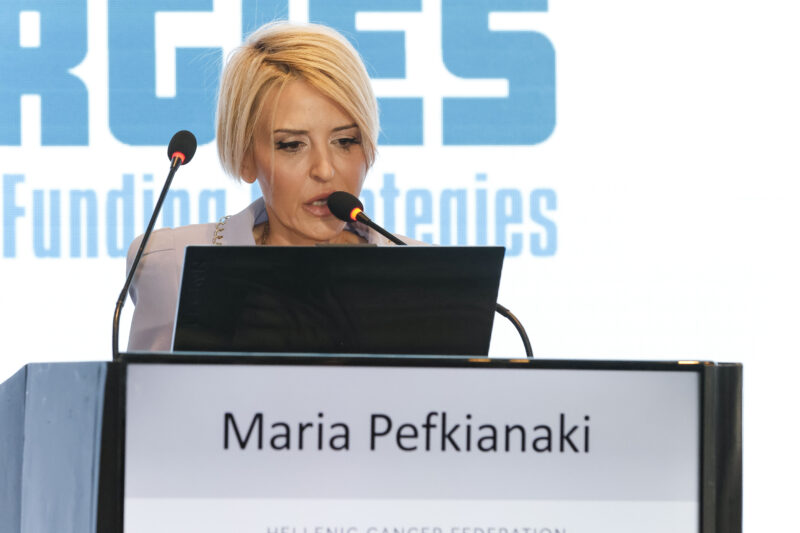
Adolescents and Survivors: The Forgotten Middle
Katie Rizvi, the founder of Youth Cancer Europe, pointed out the systemic neglect of adolescents and young adults (AYA):
“AYAs are often caught between pediatric and adult oncology, and their unique needs are overlooked. We need tailored services, especially in transition care and mental health.”
She emphasized the importance of recognizing survivorship as a continuum:
“The end of treatment is not the end of cancer. Survivors face long-term health, psychological, and social challenges. They need lifelong care—not occasional check-ups.”
Katie also highlighted the essential role of patients in shaping care pathways:
“Nothing about us without us. It’s time young survivors are treated as stakeholders, not just patients.”
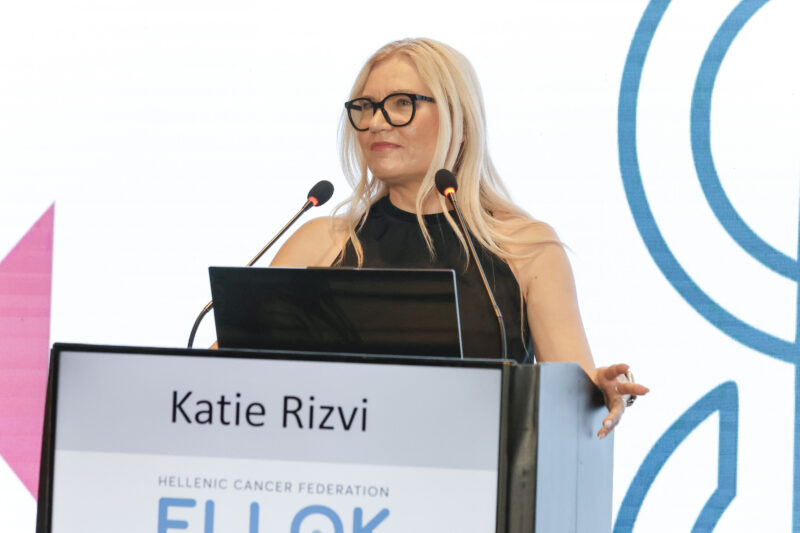
Greece: A Case of Strengths and Gaps
Dr. Emmanouil Papasavvas, representing the Greek pediatric oncology landscape, acknowledged the strengths in clinical expertise and medical dedication in Greece. However, he also noted significant gaps:
“We have brilliant minds and highly motivated professionals, but we’re still lacking coordinated policies and strategic planning across the system,” he stressed. “Delay in diagnosis remains an issue, especially in the periphery, where the awareness of the early symptoms of child cancer is limited. On the contrary, in large centers, the information is better and the perception is faster. At the European level, several countries have already developed national networks of early diagnosis, which in Greece are still in the initial stage”.
He called for regional collaboration:
“Smaller EU countries need support to access cutting-edge therapies and trials. Harmonization means sharing resources and knowledge, not imposing uniformity.”
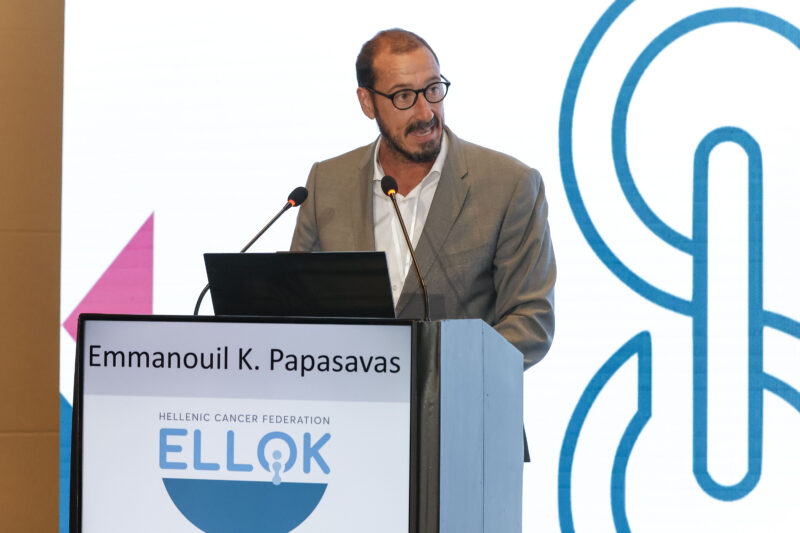
The Path Forward
Across the discussion, panelists agreed on core priorities to drive harmonization of pediatric cancer care in the EU:
1. Equity in Access – ensuring no child is disadvantaged by geography
2. Sustainable Funding – particularly for registries, networks, and rare cancer research
3. Lifelong Care – incorporating psychosocial, educational, and vocational support for survivors
4. Patient Inclusion – involving families and survivors in every step of the care and policy design
5. Inter-Country Collaboration – leveraging EU structures to support underserved regions
About the 2nd Synergies Forum on Cancer – Policy, Research & Funding Strategies
Following the success of the 1st Greek Forum on Cancer in July 2024, which highlighted the pressing need for strategic cancer-related health policies, the Hellenic Cancer Federation – ELL.O.K. continues its mission with the organization of the 2nd Synergies Forum on Cancer: Policy, Research & Funding Strategies, to be held on 30 June and 1 July 2025 at the Wyndham Grand Athens Hotel.
This year’s Forum seeks to foster dialogue and cooperation among stakeholders with a central goal: to improve the quality of life for cancer patients through the development and implementation of effective, sustainable health policies. Towards this, a key focus will be the optimal utilization of the European Cancer Mission, connecting cutting-edge research with clinical practice to deliver real-world solutions for both patients and healthcare systems.
